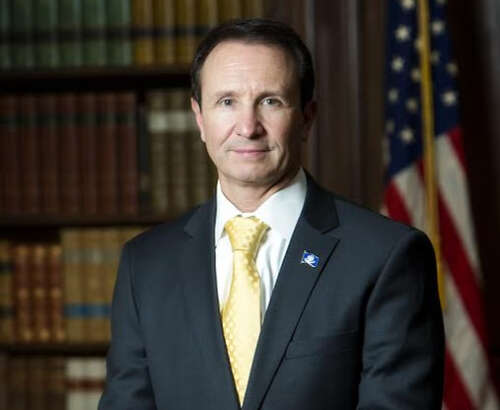
Louisiana Governor Jeff Landry has wasted no time since taking office, pushing to undo many criminal justice reforms, increase oversight of New Orleans’ Sewerage and Water Board, and cutting funding for shelter for domestic violence victims. He announced in early February that he intends to send members of the Louisiana National Guard to Texas to help the Texas National Guard with border patrol.
On January 17, Landry caught our eye when he signed an executive order that, among other things, asks state agencies to tally the cost of dealing with undocumented immigrants. Executive Order JML 24-05 directs “the head of every executive branch state agency, department, office, commission, board, or entity of the State of Louisiana” to “provide a written report to the Office of the Governor, stating the duties and responsibilities of such agency, department, office, commission, board, or entity relative to the provision of public services or the expenditure of public funds directly or indirectly to, or for the benefit of illegal aliens.”
It also directs these bodies to report “one or more recommendations for collecting an analyzing data related to the provision of public services or expenditure of public funds directly or indirectly to, or for the benefit of illegal aliens.”
We could go deep into a breakdown of Landry’s executive order, but since the document is more of a political exercise than a legal one—part dog whistle, part mission statement—that feels like the wrong approach. It is certainly a predictable extension of Landry’s efforts while he served as Attorney General. He joined the efforts made by Republican AGs to address immigration-related issues at the state level, and this executive order springs directly from that.
In January 2023, Attorneys General from Texas and Louisiana joined those from Alabama, Alaska, Arkansas, Florida, Idaho, Iowa, Kansas, Kentucky, Mississippi, Missouri, Montana, Nebraska, Ohio, South Carolina, Tennessee, Utah, West Virginia and Wyoming to sue the Biden Administration to stop a number of actions including creating the Migrant Parole Program and lifting Title 42, which used COVID as a pretext to prevent migrants from entering the country.
To bring suit, the states had to show standing—that they were in some way harmed by the undocumented immigrants. Landry’s executive order wants to find information that will show how Louisiana has been forced to spend taxpayer money on them, contending that those expenditures constitute harm to the state.
We could go into the document in detail and challenge many of its assertions and assumptions made in the executive order, but one example show its hand.
Landry’s executive order stipulates that “an alien granted parole under U.S.C. 1182(d)(5), temporary protected status, deferred action, deferred enforced departure, or similar exercise of administrative grace or prosecutorial discretion shall not be deemed to have lawful immigration status.” That means that Dreamers protected by DACA are seen by Landry’s administration as simply undocumented immigrants—actually, he goes out of his way to explain why he considers “illegal alien” the proper terminology—as are people people USCIS has granted temporary protected status. His executive order chooses to find the largest number of undocumented immigrants possible and refuses to accept the legitimacy of acts by the government that give them status.
It certainly looks like Landry’s executive order will make Louisiana’s government less effective, at least in the near future. It puts the departments and agencies on a tight time line, calling for a lot of internal changes inside the next 180 days that will affect how bodies interact and conduct business so that they can better collect this data. It’s not clear how organizations, departments and agencies will be able to do this work while keeping up with their usual tasks, nor is it clear that it’s really in Louisiana’s best interests to shift its priorities and allocate its resources in these ways.
As a cynical exercise in politics, it makes perfect sense. Right now, a substantial portion of the conservative voters is animated by immigration. After the New Hampshire primary, exit polls showed that 4 in 10 Republicans believed that immigration is the biggest issue facing the United States. An Associated Press story reports that “7 in 10 say immigrants in the U.S. today do more to hurt the country than help it. And 8 in 10 favor building a wall along the southern border.” Only 3 in 10 consider the economy the biggest issue.
It’s also easy to see the executive order as a bank shot to hurt non-profit agencies that work with Louisiana’s undocumented immigrant population. The state could try to tie money that goes to those non-profits to data collection efforts, which would force the agencies to choose between data collection that would scare away clients who are understandably suspicious of government, and the money that they need to serve that population. In either case, that dilemma makes Louisiana a less hospitable place for undocumented immigrants.
Landry’s efforts will almost certainly face legal challenges and constitutional obstacles, but even if they’re upheld and this never goes into effect, the executive order will have served its purpose. It will have signaled to a portion of the Republican base that Louisiana’s Governor’s Mansion is on their side, while making it clear to immigrants and those who wish to help them that kindness, civility, and community-building may be subversive acts for the next four years.
Are you having legal issues with Immigration? Do you need legal representation?